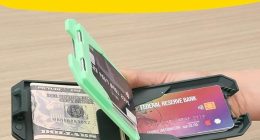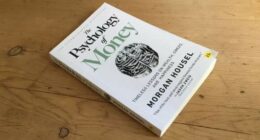“Emotional Budgeting – The Future of Personal Finance”
In a world driven by instant gratification, a new wave of financial awareness is emerging—emotional budgeting.
Unlike traditional budgeting, which divides income into categories like rent, groceries, and savings, emotional budgeting asks a deeper question: “How does each dollar I spend make me feel?” It shifts focus from numbers to emotional ROI—return on emotion.
For instance, spending $5 on coffee might seem trivial. But if that daily coffee gives you a moment of peace and clarity before a stressful job, its value far exceeds its price. On the other hand, spending $50 on weekend shopping driven by boredom might leave you feeling regret, signaling emotional debt.
Tech-savvy millennials and Gen Z are beginning to track spending not just in dollars but in moods—using apps and journals to record how their purchases affect their mental health. Finance is no longer just a game of compound interest and retirement plans. It’s evolving into a mindful, value-based lifestyle.
Emotional budgeting may not replace spreadsheets, but it will redefine wealth—not by how much you save, but by how wisely and joyfully you spend.







